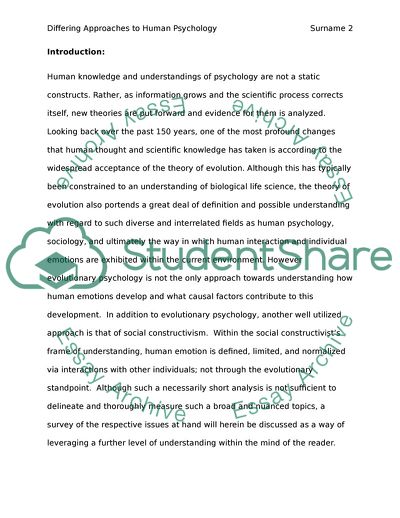Cite this document
(Differing Approaches to Human Psychology: An Exploration and Discussion Coursework Example | Topics and Well Written Essays - 2250 words, n.d.)
Differing Approaches to Human Psychology: An Exploration and Discussion Coursework Example | Topics and Well Written Essays - 2250 words. https://studentshare.org/philosophy/1834717-evaluate-the-debate-between-the-social-constructive-and-the-evolutionary-psychologist-view-of-emotion
Differing Approaches to Human Psychology: An Exploration and Discussion Coursework Example | Topics and Well Written Essays - 2250 words. https://studentshare.org/philosophy/1834717-evaluate-the-debate-between-the-social-constructive-and-the-evolutionary-psychologist-view-of-emotion
(Differing Approaches to Human Psychology: An Exploration and Discussion Coursework Example | Topics and Well Written Essays - 2250 Words)
Differing Approaches to Human Psychology: An Exploration and Discussion Coursework Example | Topics and Well Written Essays - 2250 Words. https://studentshare.org/philosophy/1834717-evaluate-the-debate-between-the-social-constructive-and-the-evolutionary-psychologist-view-of-emotion.
Differing Approaches to Human Psychology: An Exploration and Discussion Coursework Example | Topics and Well Written Essays - 2250 Words. https://studentshare.org/philosophy/1834717-evaluate-the-debate-between-the-social-constructive-and-the-evolutionary-psychologist-view-of-emotion.
“Differing Approaches to Human Psychology: An Exploration and Discussion Coursework Example | Topics and Well Written Essays - 2250 Words”. https://studentshare.org/philosophy/1834717-evaluate-the-debate-between-the-social-constructive-and-the-evolutionary-psychologist-view-of-emotion.


